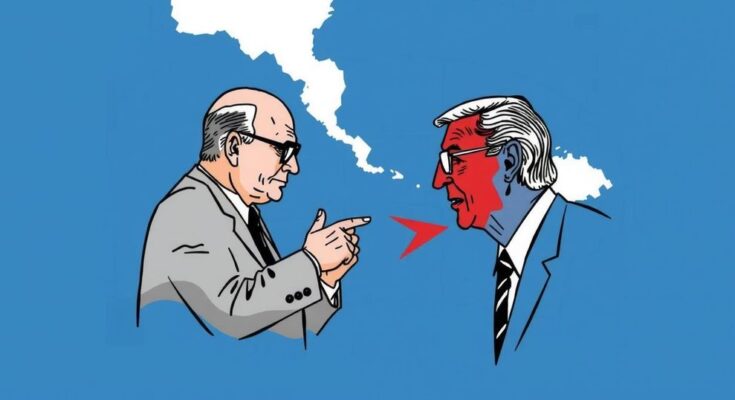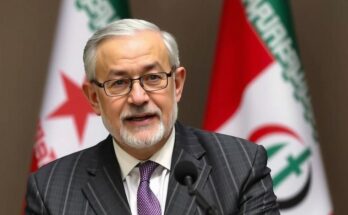American officials doubt a ceasefire in Gaza will be reached before the U.S. presidential election, with Netanyahu waiting to see the election outcome. Meanwhile, there is optimism for a ceasefire between Israel and Hezbollah, according to Lebanese officials. Recent diplomatic engagements aim to address both Gaza and Lebanon conflicts, though substantial challenges remain.
American officials express skepticism regarding the outcome of a final diplomatic effort aimed at establishing a ceasefire in Gaza prior to the upcoming U.S. presidential election. As Israeli Prime Minister Benjamin Netanyahu appears to be postponing actionable decisions until after the election, officials foresee little chance for immediate progress. Nonetheless, there are somewhat elevated hopes for a resolution to the hostilities in Lebanon, where Prime Minister Najib Mikati indicated optimism about reaching a ceasefire agreement with Hezbollah in the near term. CIA Director Bill Burns engaged in talks in Cairo concerning both Gaza and Lebanon, while U.S. envoys Amos Hochstein and Brett McGurk were active in Israel, discussing potential hostages’ release and ceasefire conditions, along with issues pertaining to Iran. The Biden administration understands that any success in calming regional tensions would be a positive outcome, but the prevailing sentiment is that Netanyahu prefers to wait until the U.S. election concludes before making significant decisions. Despite low expectations for the Gaza situation, the discussions surrounding the Israel-Hezbollah border conflict have yielded some optimism due to recent progress. Netanyahu emphasized that Israel must retain the ability to enforce any ceasefire to ensure security, indicating a desire for a robust agreement rather than just a formal ceasefire on paper. As Vice President Kamala Harris addresses the U.S. election campaigns, she faces protests calling for a ceasefire in Gaza, illustrating the political challenges associated with this conflict. While American diplomacy makes another strenuous effort to resolve the situation in the region prior to the election, officials remain cautious about the chances of major breakthroughs. Current proposals on the table involve a monthlong ceasefire in exchange for hostages, but critical details remain unresolved, leading to continued uncertainty.
In an environment of escalating conflicts in the Middle East, American officials are engaging in last-minute diplomatic efforts aimed at negotiating a ceasefire in Gaza. The geopolitical backdrop includes growing tensions between Israel and Hezbollah, particularly concerning Lebanon, and the involvement of U.S. officials in influencing the outcomes of these conflicts. The impending U.S. presidential election adds a layer of uncertainty concerning Israel’s diplomatic strategy, as Netanyahu appears to defer significant actions until the election outcome is clear. Discussions involve hosts not just of military concerns but also hostages and regional security implications.
In summary, American officials are doubtful about reaching a successful ceasefire in Gaza before the U.S. presidential election due to Netanyahu’s strategic delay. Hopes for a ceasefire in Lebanon have increased, with potential agreements being discussed. Despite ongoing diplomatic efforts, significant challenges remain, particularly regarding the complexities of hostages and security guarantees, making immediate resolution in the region unlikely as the election looms.
Original Source: www.cnn.com




